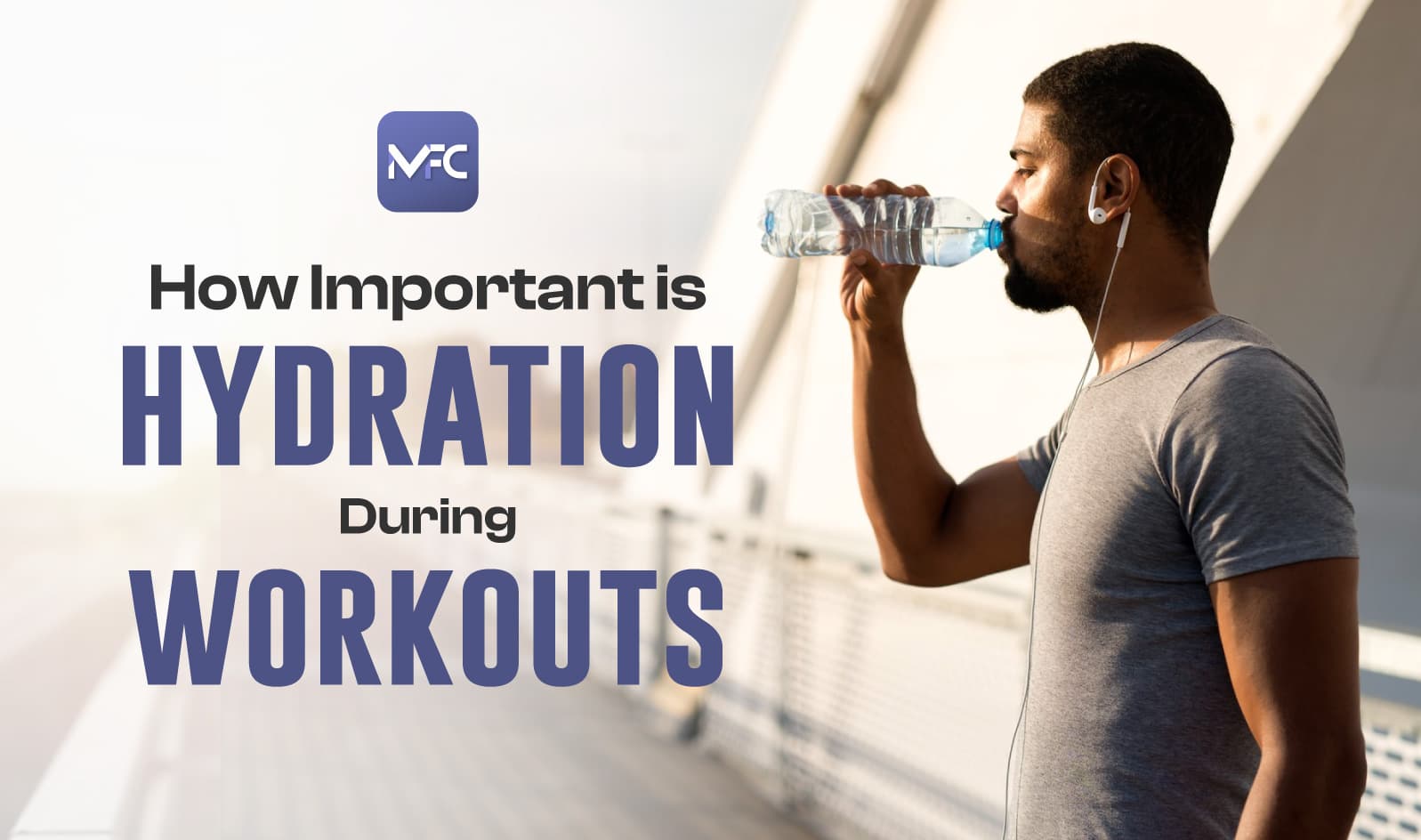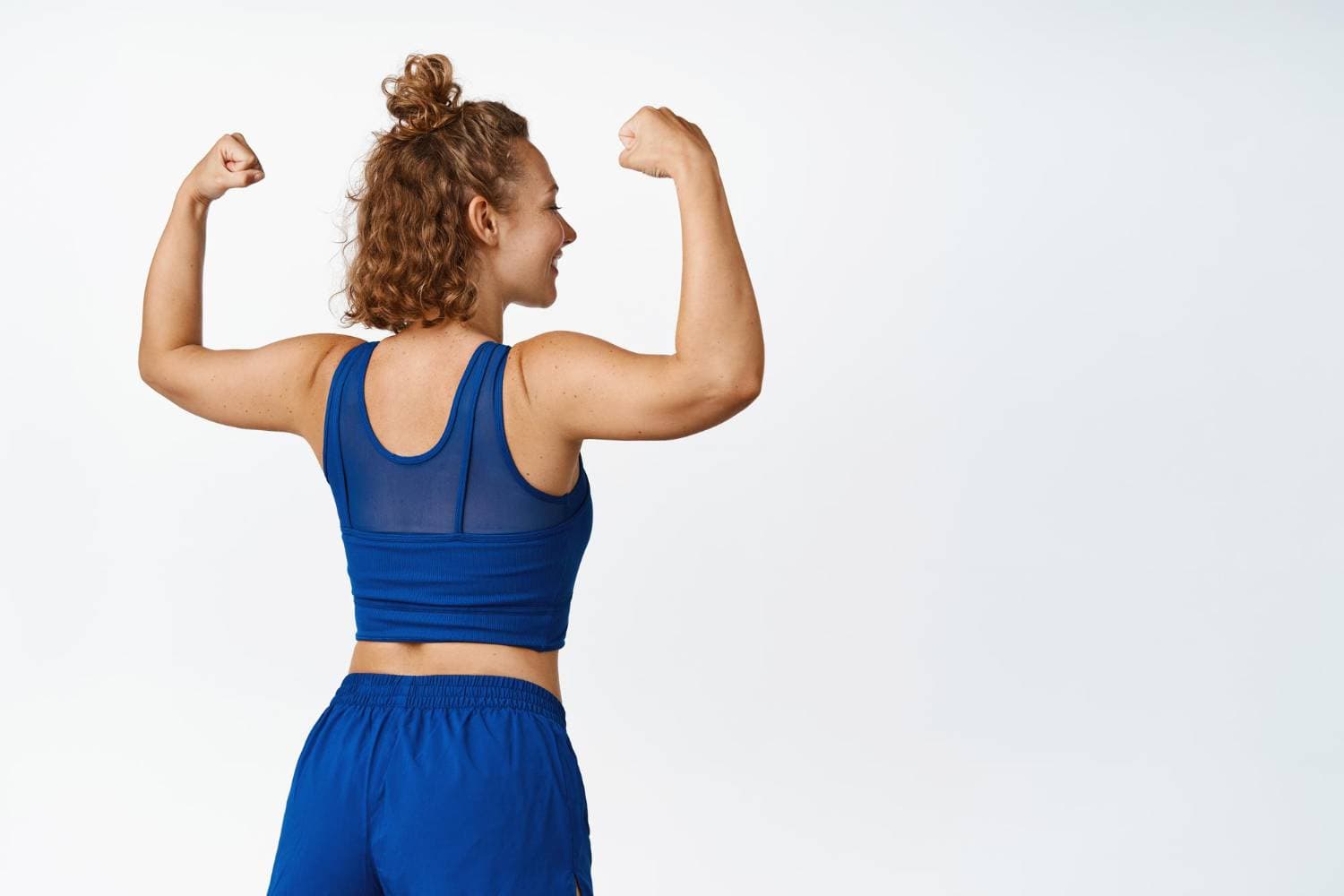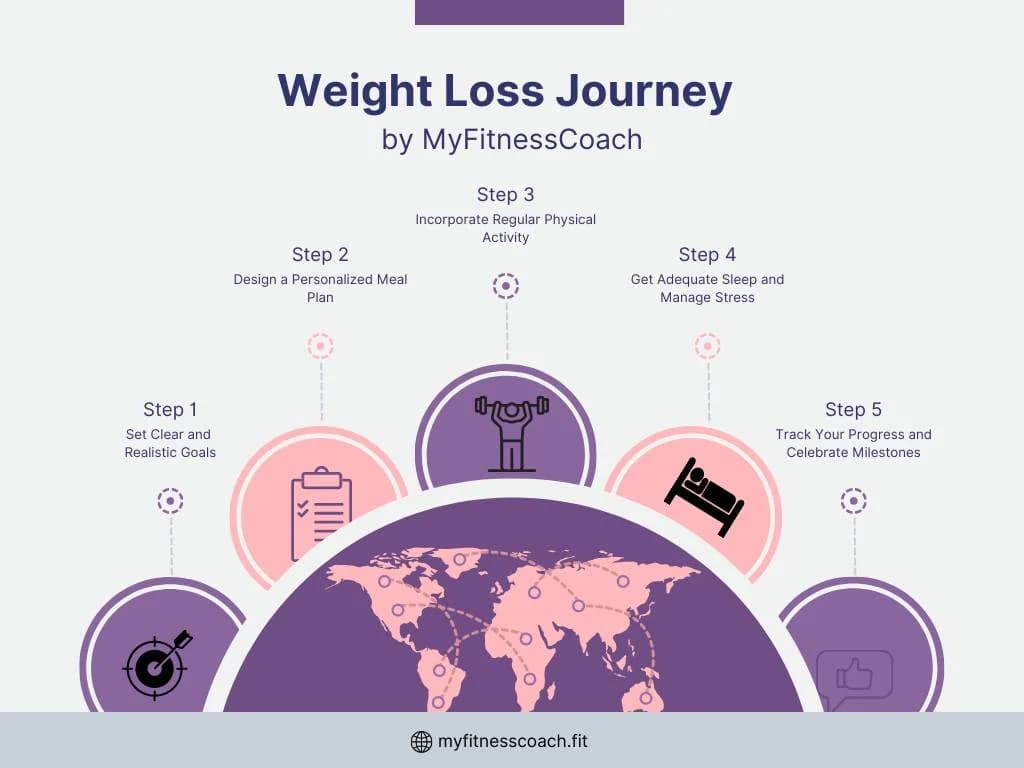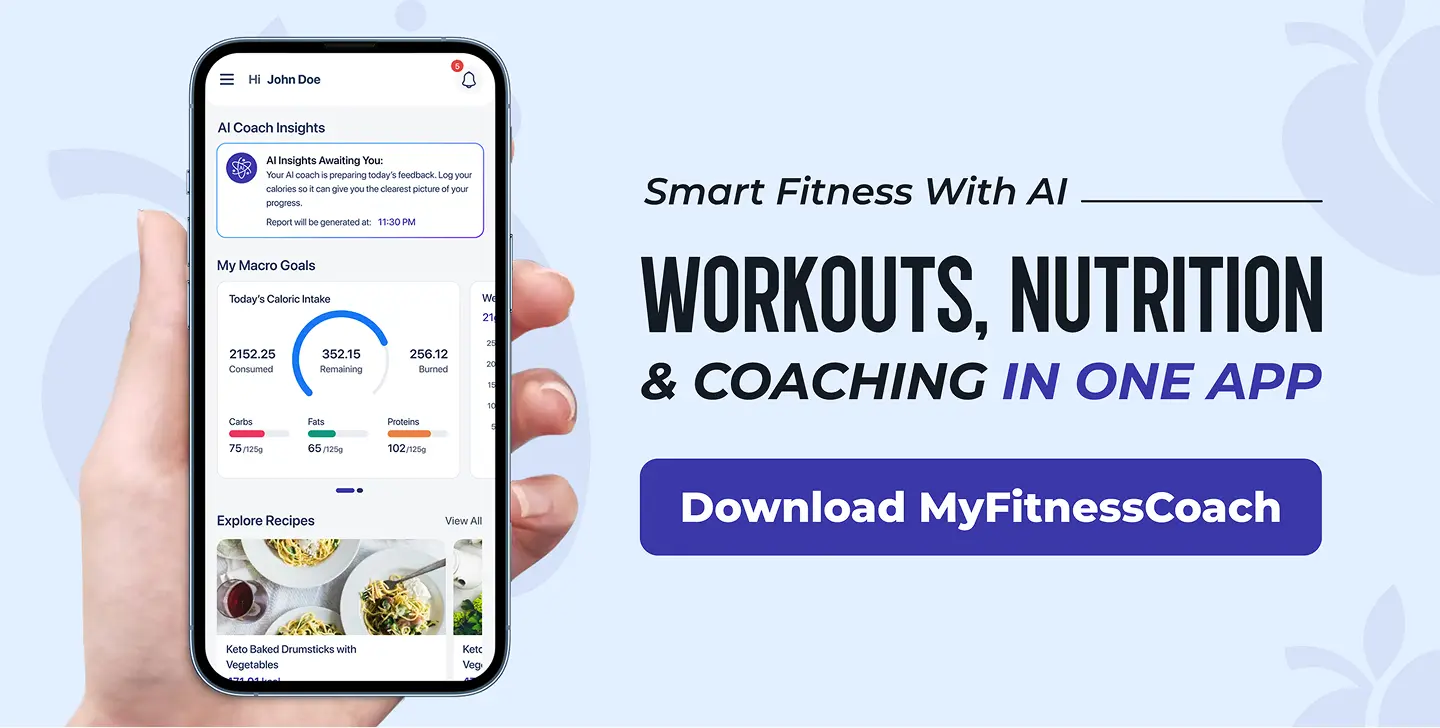How Important is Hydration During Workouts?

MyFitnessCoach
November 29, 2024
Hydration is one of the most essential, yet often overlooked, aspects of a successful workout routine. Water plays a crucial role in maintaining our body’s equilibrium and in supporting overall health. This is especially true during workouts when the body loses water through sweat and energy through exertion.
Drinking enough water before, during, and after exercise can improve your performance. It can also help reduce fatigue and support your body’s recovery.
In this article, we will discuss why staying hydrated is important for fitness. We will look at how hydration affects performance. We will also share tips on how to stay well-hydrated for your workouts.
The Role of Water in Physical Performance
Water helps carry important nutrients to the cells. It also flushes out toxins and keeps joints lubricated. This is especially helpful during intense workouts.
When you’re well-hydrated, your body has sufficient water to support blood flow to the muscles, allowing them to work harder and longer. Studies have shown that even a 1-2% decrease in body weight due to water loss can significantly impact physical performance. When water intake is adequate, you can experience better endurance, sharper focus, and faster recovery.
Signs of Dehydration and Its Impact on Exercise
Recognizing dehydration early is key to preventing a dip in performance and ensuring your safety. Here are some common symptoms of dehydration to watch for:
- Feeling thirsty or parched
- Dry mouth and lips
- Headaches or light-headedness
- Muscle cramps or stiffness
- Reduced urine output with dark yellow color
- Fatigue or lack of energy
If you notice these symptoms during your workout, it’s a sign your body needs fluids. Ignoring dehydration can hurt your body’s performance. It can lead to less endurance, slower reaction times, and a higher risk of injuries.
How Much Water Do You Need for Workouts?
The amount of water you need depends on several factors. These include your body weight, the type of exercise, and the environment.
A good rule is to drink 15-20 ounces of water two hours before a workout. Then, sip 7-10 ounces every 15-20 minutes while exercising. After your workout, rehydrate by drinking another 8 ounces of water within 30 minutes to replace any lost fluids.
However, every individual’s hydration needs vary, and factors such as high temperatures, humidity, or vigorous exercise can require you to drink even more water. Pay attention to your body’s signals and drink accordingly. If your workout lasts more than an hour or is particularly intense, consider a sports drink that can help replenish lost electrolytes, which are essential for muscle function.
The Importance of Electrolytes in Hydration
Electrolytes are minerals such as sodium, potassium, magnesium, and calcium that carry an electric charge and are vital for maintaining fluid balance. During extended workouts, especially in hot environments, your body not only loses water but also electrolytes. Without enough electrolytes, you may experience muscle cramps, fatigue, and even nausea. Sports drinks with electrolytes can be beneficial, but keep in mind that some contain added sugars, so choose options that align with your health goals.
Natural options, such as coconut water, also contain electrolytes and can be a great alternative for post-workout hydration. If you’re engaged in moderate exercise or short workouts, plain water will typically be sufficient for maintaining hydration.
Strategies to Stay Hydrated
Maintaining hydration is about more than just drinking water when you’re thirsty. Here are some tips to help you stay hydrated consistently:
- Start your day with a glass of water to kickstart your hydration.
- Drink water throughout the day to keep your body hydrated before hitting the gym.
- Bring a reusable water bottle to your workout and take sips between sets.
- Choose hydrating foods such as fruits and vegetables, which have a high water content.
- Avoid excessive caffeine or alcohol intake, as these can lead to dehydration.
If you struggle to drink enough water, try setting reminders on your phone. You can also use a hydration tracker app to help you stay on track. By following these easy habits, you can keep your body well-hydrated. This will improve your workout performance and overall health.
Hydration Tips for Different Types of Workouts
Each workout has unique hydration needs. Here’s a breakdown of how much water is beneficial depending on your activity level:
- High-Intensity Workouts: HIIT workouts or weightlifting sessions require you to stay on top of your hydration. Sip water regularly, and consider adding an electrolyte drink if your workout exceeds an hour.
- Cardio Sessions: Running, cycling, and similar cardio exercises can make you sweat a lot, especially if done outdoors. Drink water before starting, keep sipping throughout, and rehydrate well afterward.
- Yoga and Pilates: These exercises may not make you sweat as much as cardio, but hydration is still important for muscle flexibility and focus. Drinking water before and after can help you get the most out of your session.
Different workouts demand varying hydration strategies. Finding what works best for you is key. When you’re well-hydrated, you’ll find it easier to maintain stamina and form, both of which can prevent injuries and promote faster progress.
Hydration and Recovery
After working out, proper hydration helps reduce soreness and supports muscle repair. Drinking water after a workout helps remove waste products from your body. These include lactic acid, which can lead to stiffness and soreness.
Drinking water after a workout helps replace fluids lost through sweat. It also aids in faster muscle recovery. This makes it easier to stick to your fitness goals.
Using the MyFitnessCoach App to Track Hydration
If you’re serious about reaching your fitness goals, hydration is a vital component that shouldn’t be overlooked. The MyFitnessCoach app is a powerful tool designed to help you monitor and maintain optimal hydration levels.
The app has reminders to help you stay on track with your hydration goals. It works throughout the day and during workouts. This way, you won’t have to worry about dehydration hurting your performance.
MyFitnessCoach helps you track your workouts and monitor your progress. You can also get personalized tips to support your fitness journey.

By adding hydration tracking to your routine with MyFitnessCoach, you can improve every workout. This will help you recover better and reach your goals faster while staying healthy. Remember, staying hydrated is not only about quenching thirst—it’s about giving your body the fuel it needs to perform at its best.
Similar Articles
Stay informed with these similar articles.

MyFitnessCoach
October 18, 2023
What Does Body Goals Mean? A Path to a Healthy Lifestyle
In the world we live in now, lots of people talk about "body goals," which means having a body that's seen as perfect. On social media, in magazines, and on TV, we see lots of pictures of people with what seems like perfect bodies, which makes us feel like we have to look like them. But the real meaning of "body goals" is more than just looking good. It's about taking care of your whole self, not just how you look. In this article, we will discuss what does body goals actually mean and how you can achieve your body goals. Let’s get started:
.webp&w=3840&q=75)
MyFitnessCoach
September 5, 2023
How Much Protein in an Egg | The Nutritional Power
Eggs have long been a breakfast favorite for many, and for good reason. They're not only delicious but also packed with essential nutrients, making them a versatile and nutritious addition to your diet. One of the most common questions about eggs is, "How much protein is in an egg?" In this comprehensive guide, we'll delve into the world of eggs and explore their protein content, nutritional benefits, and how they can contribute to a balanced diet.

MyFitnessCoach
May 18, 2023
Fitness Guide: How Do I Start A Weight Loss Journey
Ready to start on a life-changing weight-loss journey? Congratulations for taking the first step towards being a better and happier version of yourself! Starting off a weight-loss journey may be both satisfying and stressful. With so much information available, having a well-defined plan and trusted assistance in achieving your goals is important. This article will help you start your weight-loss journey and achieve the results you desire.
